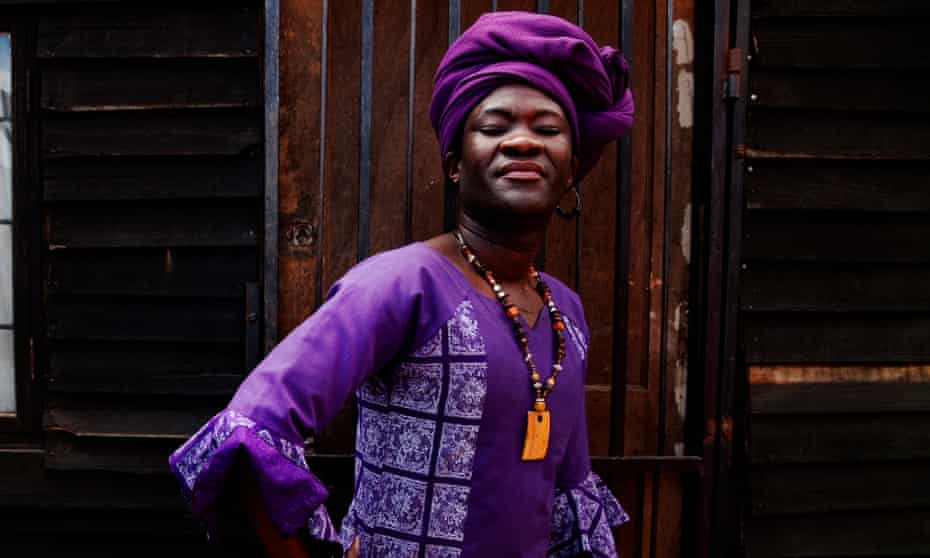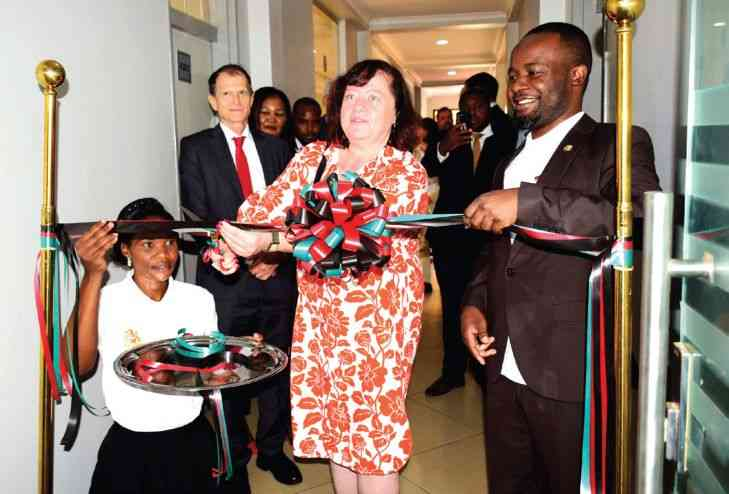One of Malawi’s largest poultry companies, Crown Agribusiness Group, illegally seized land from Emily Phiri, a poor elderly woman in Senzani, Ntcheu. With the help of her grandchildren, Emily fought a protracted legal battle and won in court. Tragically, she passed away before seeing justice served. Despite the court ruling in her favor, Crown Agribusiness Group defied the order, refusing to vacate the land and subsequently selling it to Central Poultry, raising serious questions about justice, power, and corruption in Malawi’s land management system. Jack McBrams On May 21, 2013, the court issued a summons in a case brought by Dorophy Sambaninso Jumbe, Lynn Jumbe, and Mphatso Jumbe against Crown Agro Processors and the Attorney General. The family accused the Crown of trespassing and unlawfully occupying their land. In its defense, Crown claimed it had a 33-year lease from the Malawi government, starting March 1, 2011, for 18,350 hectares of customary land known as Plot Number 15 at Liwonde Village, TA Phambala, Ntcheu District. This land, located along the M1 at Liwonde Village, was once home to Emily Phiri, who had settled there in 1974. Emily’s father, Pastor Ngaiyaye, originally found the land and handed it down to her. She cultivated it, growing maize, cashew nuts, and chilies, and built a house for her workers and harvests. This idyllic life was disrupted when Crown Agribusiness Group began its aggressive land acquisition, leading to a series of unfortunate events that would forever change the lives of Emily’s descendants. Emily Phiri’s land, now known as Likudzi Farm, became the target of Crown Agro Limited’s expansion plans. Despite a 2019 court ruling that ordered the company to vacate the land, Crown did not comply. Instead, they sold the land to another company, Central Poultry, exacerbating the family's ordeal. This blatant disregard for the court order and the family's rights has left a trail of destruction and loss. On the day Crown invaded the land, their workers uprooted chili plants, blue gum trees, and thousands of other trees. Emily’s daughter, Dorophy, and her grandchildren, Mphatso and Lynn, watched helplessly as their livelihood was torn apart. The family’s grief was compounded by the destruction of 500 b`lue gum trees, 4,000 grevillea trees, 150 cassia trees, 1,500 gmelina trees, and 400 gmelina seeds already planted. The family’s history on this land dates back to 1974 when Emily Phiri settled there with her father. Her father, after retiring from working at Lake View in Ntcheu, decided to settle in Mpamadzi village, TA Champiti, Ntcheu. Emily settled on the land from 1974 to 1997, and the land was given to her by Group Village Headman Senzani. In the meantime, she became a mother to Dorophy Sambaninso Jumbe and a grandmother to Lynn and Mphatso Jumbe. Years later, the land she owned became known as Likudzi Farm, and she subdivided it among her children before her death. The 2013 assessment that was delivered by the High Court in 2013 The Court’s Verdict and Continued Defiance Judge Michael Mkandawire, upon examining the evidence, ordered the land back to Emily Phiri’s family in a ruling delivered on June 21, 2019. The judge also ordered a compensation of K60 million for the family. However, the chickens and their corporate owners did not leave. Family spokesperson Mphatso Jumbe admitted that they received K42 million of the K60 million after the lawyers deducted their fees. “Our emphasis is not the money but rather the implementation of the judgement as per the High Court order,” she told PIJ. The family’s lawyer, Justin Dzonzi, was supposed to serve an eviction order on Crown but allegedly failed to act, prolonging the family’s agony. Mphatso Jumbe, representing the family, filed a complaint with the Malawi Law Society, accusing Dzonzi of undermining their interests. “The actions of the lawyer have had deep emotional devastation, economic cost, and physical effects coming from prolonged stress with this matter,” reads a complaint the family filed with the Malawi Law Society. The lawyer, however, argued that the family did not honour legal fees and had initially accepted a proposal for a payoff. Dzonzi denied all allegations of wrongdoing, in a separate interview. He said Jumbe and the family had not paid legal fees hence the lawyer could not move forward with the matter and said at some point, the family accepted an out-of-court agreement to allow the company to rent the land while waiting for the matter to be resolved in court. Some of the affected elderly women who were jilted of the land Voices from the Community Hannah Liwonde, village head at Liwonde, recalls the injustice her father handled, noting that the land was sold without the owners' consent. “We just heard that the land had been sold by T/A Phambala but without the consent of the owners and that the money that the chief received was not given to the owners of the land. What we know is that the case has been in court,” she told PIJ at the site of the land dispute at Chitale. On his part, Ntcheu District Commissioner George Ngaiyaye said he was not aware of the on-going land wrangle involving the two parties. “The issue could have happened before I was posted here [as DC]. What I am aware of is the issue that the same family had with someone else regarding the land next to the one you’re referring to but that issue was resolved here at the DC’s offices,” he said. Maggie Kathewera, Executive Director of Women’s Legal Resource Centre (Worlec), highlights the broader issue of women’s land rights in Malawi, noting that justice often remains elusive even when courts rule in their favour. “One of the things that we see all the time is that thoug no h judgments can be good, you find that execution of the same remains a challenge,” said Kathewera, referring to previous cases her organization has handled. The view of the ex-Crown Feeds now Central Poultry chicken farm at Chitale seen from the M1 Road Crown’s History of Controversies This Senzani land case is not isolated. Crown has been involved in other land disputes, including a bitter wrangle with Mota Engil over 9,000 hectares in Ntcheu’s Bwanje Valley. The company's aggressive land acquisition strategies have repeatedly brought them into conflict with local communities. Investigations revealed that most of the chiefs who initially signed documents authorising Crown Plantations’ land ownership have now turned against the company, preferring to allocate the same land and additional hectares to Mota Engil. Crown obtained an injunction from the High Court in Blantyre, stopping Mota Engil from operating on the land. Crown claims it had already invested over $167,464 in digging a two-and-a-half-kilometre irrigation canal from Lake Malawi to the mainland. The canal is 11 metres wide and two metres deep. Aside from the land issues, Crown Group, a multi-billion Kwacha operation, has a history of legal and ethical controversies. Apart from Crown Feeds, its subsidiary companies include PolyPack Ltd, the largest processor of plastics in Malawi, Crown Pharmaceuticals, and Research Laboratories Limited. In 2012, the company was investigated for corruption after allegedly obtaining confidential tender details from an employee of the Central Medical Trust. Although the employee was prosecuted, no Crown official was arrested. The courts later acquitted the employee. In 2018, the company was suspected of illegal gold mining in the Senzani area after clearing a large swathe of land. NGOs working in the environmental sector demanded an official probe into the allegations, but the government dismissed the calls. Crown's defense was that the digging was part of construction for another chicken pen, not by itself, but by another company, Central Poultry, to whom it had sold the land. Corporate Strategies and Local Resistance Crown Group’s aggressive tactics in land acquisition are exemplified in the Senzani case. The company’s Administration Manager, Davie Malamia, who has been in charge since 2010, played a crucial role in the acquisition process. The lease for the land was granted by the Ministry of Lands on March 1, 2011, and by May 2011, the company started clearing part of the land. This rapid development highlights the company's ability to manoeuvre through legal and bureaucratic hurdles. Peter Khaiya, who once owned land in the area and was a neighbour to Emily Phiri's land, recalls being approached by Group Village Headman Chikhasu and TA Phambala with an offer for his land. He accepted the offer and claims most people, including Emily Phiri, also accepted the offer to sell their land to Crown Agro Ltd. He says they were given compensation, although they felt the money was insufficient. Khaiya personally received K200,000 for three hectares of land. However, the family's struggle continued as the land dispute revealed deep-rooted issues in land management and justice delivery in Malawi. When the matter was heard by the High Court, Judge Mkandawire made startling discoveries. The lease application form was signed only by TA Phambala and Village Headman Chikhasu, with no dates on when they had signed the form. Village Headman Chikhasu, reputedly unable to read or write, had his signature forged by TA Phambala. Despite these glaring omissions, the District Commissioner permitted the lease on December 3, 2010. Judge Mkandawire described the forms as “dubiously completed by TA Phambala no wonder they do not make sense.” The judge's shock extended to the role of the Principal Secretary for Lands and Housing, F. Zengeneya, who sent a memo to the Minister approving the lease for 21 years to Alexander Edward Phambala, the birth name of TA Phambala. On February 2, 2011, A.E Phambala wrote the Commissioner of Lands for the Central Region, advising him to change the lease to the name of Crown Agro Industries Ltd. The 18,350 hectares in yellow, with the chicken farm on the right, is the land under dispute Ongoing Struggles and Future Uncertainties Despite the court ruling in favour of Emily Phiri’s family, Crown Agribusiness Group remains entrenched. The family’s lawyer, Justin Dzonzi, has been accused of failing to serve the eviction order, delaying justice further. The family’s complaint to the Malawi Law Society highlights the deep emotional and economic toll of this prolonged battle. A lawyer for Crown Agribusiness did not respond to questions for months. A former company representative told us the company was sold but is still pursuing the case with an appeal at the Supreme Court of Malawi. The company has yet to relinquish the land and has sold most of its assets on the land to Central Poultry. PIJ’s efforts to talk to Central Poultry directors Nizam and Yasin Kasmani proved futile as their phones went unanswered and they did not respond to our WhatsApp and emails.






